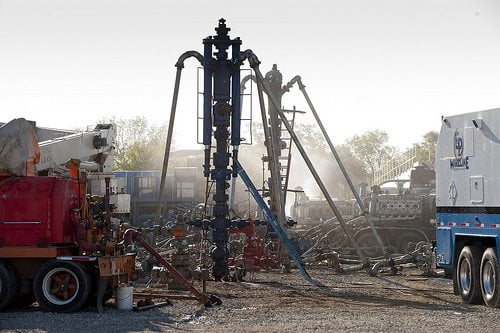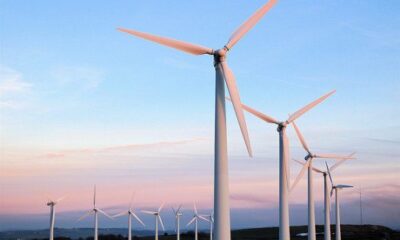

Energy
“Fracking Opponents Risk Locking us into Coal and Higher CO2 Gas Imports for Longer”
By acting to stop the extraction of shale gas in the UK, opponents risk delaying the switch from coal-to-gas in electricity generation whilst increasing foreign imports of higher CO2 natural gas, preventing the urgent cuts in carbon emissions that are needed to avoid the worst effects of climate change.
Campaigners from the pro-shale residents group, Backing Fracking, will be making a delivery of coal to Blackpool Football club on Tuesday at a demonstration of support to mark the start of the public inquiry into Cuadrilla’s shale gas planning appeal in Blackpool, Lancashire.
Chris Evans, a spokesperson for the group said: “Those that are against shale gas claim to care about the climate and air pollution, but in spreading false claims about fracking just to stir-up local opposition, they risk delaying the switch away from coal fired power generation whilst leaving us increasingly dependent on high CO2 gas imports.”
Coal fired power generation in the United States has fallen to its lowest level since 1949 as a result of a shale gas and renewables boom, helping to cut CO2 emissions by 32%
The UK now wants to follow this example, with the announcement in November 2015 that the Government intends to end the use of coal in electricity generation by 2025, a move welcomed by the former US Vice President turned climate campaigner, Al Gore, who described it as “an excellent and inspiring precedent.”
When burnt to generate electricity, gas releases approximately half the CO2 of coal and virtually none of the harmful particulates that cause local air pollution and are blamed for thousands of early deaths in the UK every year.
Renewables alone can’t fill the gap that would be left by switching off all our coal fired power stations, which is why there is so much interest in following the US lead by tapping the UKs abundant shale gas deposits. The alternative will be to increasingly rely on expensive gas imports from as far afield as Qatar that have a far higher carbon footprint.
But without gas as a viable alternative to coal, which currently supplies around 30% of the UK’s electricity needs [4], we’re sure to see a future policy u-turn that extends its use in order to keep the lights on.
“Whichever way you look at it, attempts to block fracking look set to saddle us with coal and high CO2 gas imports for longer, undermining efforts to reduce climate change emissions and improve air quality for millions of people.
“Not only that, producing our own gas would help to create better jobs, on better pay and with better prospects for people in parts of the country that really need them, like Blackpool, unlike gas imports that create virtually no UK jobs,” concludes Chris.


 Environment12 months ago
Environment12 months agoAre Polymer Banknotes: an Eco-Friendly Trend or a Groundswell?

 Features11 months ago
Features11 months agoEco-Friendly Cryptocurrencies: Sustainable Investment Choices

 Features12 months ago
Features12 months agoEco-Friendly Crypto Traders Must Find the Right Exchange

 Energy11 months ago
Energy11 months agoThe Growing Role of Solar Panels in Ireland’s Energy Future





























